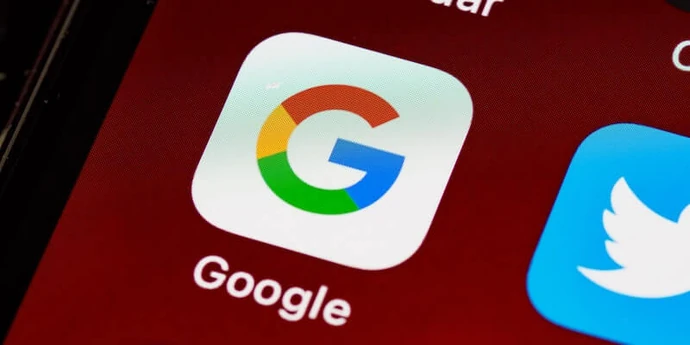Account manager interviews at Meta (formerly Facebook) are really challenging. The questions are difficult, specific to Meta, and cover a wide range of topics.
The good news is that the right preparation can make a big difference and help you land your dream job at Meta. That's why we've put together this ultimate guide to the Meta account manager interview, complete with example questions, prep resources, and an overview of the process. Use this guide to maximize your chances of success.
Here's an overview of what we'll cover:
Click here to practice 1-on-1 with FAANG ex-interviewers
1. Process and timeline
The interview process for Meta account managers typically takes roughly 1 to 3 months to complete, although it could be a bit faster or a bit slower depending on the particular location and position for which you’re applying. If you're interviewing at multiple companies, take a look at our guides to the Google account manager interview or the Amazon account manager interview.
1.1 What interviews to expect
Here’s a quick overview of the steps you’ll face along the way:
- Resume screen
- Recruiter phone screen (30-45 min)
- First-round interviews (1-2 rounds, 30-45 min each)
- Onsite interviews (2-4 rounds, 30 min each)
Now let’s cover the above steps in more detail, so that you'll have a better idea of what to expect and what you'll need to prepare for.
1.1.1 Resume screen
First, recruiters will look at your resume and assess if your experience matches the open position. This is the most competitive step in the process, as millions of candidates do not make it past this stage.
If you’re looking for expert feedback on your resume, you can get input from our team of ex-FAANG recruiters, who will cover what achievements to focus on (or ignore), how to fine-tune your bullet points, and more.
1.1.2 Recruiter phone screen
In most cases, you'll start your interview process at Meta by talking to an HR recruiter on the phone. They are looking to confirm that you've got a chance of getting the job at all, so be prepared to explain your background and why you’re a good fit at Meta. You should expect typical behavioral and resume questions like, "Tell me about yourself," "Why Meta?" or "Tell me about a time..."
If you get past this first HR screen, the recruiter will then help you schedule an interview with the hiring manager. One great thing about Meta is that they are very transparent about their recruiting process, and once you pass this initial screen, they will typically provide you with more details on the remaining steps in the hiring process.
1.1.3 First round interviews
Once you've passed the recruiter phone screen, your next interviews will be more in-depth. These interviews are typically conducted via video chat by a hiring manager or a team leader for the role that you're targeting. They usually last around 30 to 45 minutes.
There is some variation at this step in the process, with some candidates reporting only one first-round interview that covers a mix of career, client service, and product questions (more on that in section 2). Other candidates report two interviews that take the form of case studies.
If you are tasked with a case study, you may receive preparation materials in advance that you would use to put together a presentation for your interviewer. Otherwise, the interviewer will present the case during your call, and you will discuss it together as if working through a typical client consultation.
As there is some variation in this step of the process, your recruiter should give you all the information and preparation materials you need to get ready. Consult your recruiter if you have any questions about what to expect.
Then, if you make a good impression in these interviews, you'll be advanced to the final round.
1.1.4 Onsite interviews
The onsite interviews are the real test. You'll typically encounter 2-4 interviews, and the interview questions usually fall into one of four categories:
- Product/strategy questions, where you'll be assessed on your knowledge of Meta's products and your ability to make strategic business and product decisions.
- Career questions, where you'll be tested on your past work experience, your motivation for applying, and your culture-fit with Meta.
- Leadership questions, where you'll be assessed on your ability to work well with others, your perseverance through challenges, and your overall leadership skills.
- Client service questions, where you'll be asked questions about solving client problems, identifying opportunities to help clients grow their businesses, and communicating well at every step of the way.
One of your interview rounds will likely take the form of a case study and/or a presentation that will require a mix of these four skills. You’ll either receive preparation materials in advance or be introduced to a case onsite, in which case you’ll have around 15 minutes to prepare a 10-minute presentation.
As usual, your recruiter will give you information in advance about anything you may need to prepare before your interviews.
[COVID-19 changes] Due to the pandemic, it is likely that the "onsite" interviews will actually be held via a videoconference tool (i.e. BlueJeans). When you are invited to the onsite interviews, you can ask your recruiter for the latest information on the company's COVID-19 protocols.
1.2 What happens behind the scenes
Your recruiter is leading the process and taking you from one stage to the next. Here's what happens behind the scenes:
- After the first round interviews, your interviewer submits their ratings and notes to the internal system. Your recruiter then reviews the feedback and decides to move you to the onsite interview or not depending on how well you've done.
- After the onsite, the five interviewers will make a recommendation on hiring you or not and the recruiter compiles your "packet" (interview feedback, resume, referrals, etc.). If they think you can get the job, they will present your case at the next candidate review meeting.
- Candidate review meetings are used to assess all candidates who have recently finished their interview loops and are close to getting an offer. Your packet will be analyzed and possible concerns will be discussed. Your interviewers are invited to join your candidate review meeting, but will usually only attend if there's a strong disagreement in the grades you received (e.g. 2 no hires, 3 hires). If after discussions the team still can't agree whether you should get an offer or not, you might be asked to do a follow up interview to settle the debate. At the end of the candidate review meeting, a hire / no-hire recommendation is made for consideration by the hiring committee.
- The hiring committee includes senior leaders from across Meta. This step is usually a formality, and the committee follows the recommendation of the candidate review meeting. The main focus is on fine-tuning the exact level and therefore compensation you will be offered.
It's also important to note that hiring managers and people who refer you have little influence on the overall process. They can help you get an interview at the beginning, but that's about it.
2. Example questions
To help you prepare strategically for your interviews, we have used Glassdoor data to identify the types of questions that are asked in Meta account manager interviews.
Let's dive in and look at the four types of interview questions you can expect:
- Product / strategy questions (43% of questions)
- Career questions (25%)
- Leadership questions (17%)
- Client service questions (15%)
These are all real Meta account manager interview questions that were reported on Glassdoor. Note that we've made edits to the language in some places for clarity, grammar, or translation.
2.1 Product / strategy questions
Meta account managers are experts on Meta's products. So if you want to make a good impression during your interviews, you should be prepared to speak knowledgeably about products like Facebook, Instagram, WhatsApp, etc. This may require some additional preparation, but it's worth it.
In addition, you'll need to be able to think about high-level strategy around Meta's products and teams. Interviewers want to know that you’ll come in with a firm grasp on their products’ target markets, revenue models, competitors, etc. Additionally, to test your critical thinking skills, you may be asked an estimation question.
Below, we've compiled a list of example product / strategy questions that you can practice with.
Example Meta account manager interview questions: Product/strategy
- What's your plan for your first six months on the job?
- What is your favorite Meta product and why?
- What is Facebook’s business model?
- What is the difference between Facebook advertising and Google AdWords?
- Who are Facebook’s competitors in online ads?
- What is Facebook's value proposition to advertisers?
- How would you scale a new product?
- How do you develop a new market?
- Sell me this pen
- What role does Facebook hold in the digital advertising landscape?
- What is the core strategy of the products you will be in charge of?
Estimation
- How many glass windows are there in a tall skyscraper?
- How much money is spent on the internet?
- Estimate the revenue of Disneyland
2.2 Career questions
Meta account managers are the client-facing contacts for businesses that use Meta’s products. They also represent Meta when reaching out to potential new clients.
So your interviewer will need to make sure that each new hire fits Meta's company culture. They’ll ask about you, your history, your resume, your goals, and your motivation. Career interview questions are what they use to assess candidates in these areas.
This category is a mix of general behavioral and resume questions, to assess whether or not Meta makes sense with your career trajectory. Try your hand at career questions using the examples below.
Example Meta account manager interview questions: Career
- Why Meta?
- Tell me about yourself
- Tell me 3 things that are not in your resume
- Why are you looking to leave your current position?
- Why do you want to work in this position?
- What are your career goals?
- What are your strengths and weaknesses?
- What was the volume of work like in your previous job?
- If your boss could give any negative feedback about you, what would they say?
- How do you keep yourself organized?
2.3 Leadership questions
Leadership questions are similar to career questions in that they are both behavioral; however, leadership questions focus less on your motivation and fit with Meta. Instead, they focus more on collaboration (e.g. how you collaborate with cross-functional teams) and how you respond to challenges (e.g. how you handle change).
Your leadership, collaboration, and problem-solving abilities will all be central to your role as a Meta account manager. Your interviewer is looking for a candidate who will be able to both work with and lead their coworkers, who has learned from past mistakes, and who knows how to make a positive impact on their work environment.
You should expect your interviewers to test you on these skills using questions like the ones listed below.
Example Meta account manager interview questions: Leadership
- Name a leader that inspires you
- How do you work with a team?
- Tell me about a time when you disagreed with teammate
- Name a time where you've had to adapt your own personality to deal with a work colleague
- Tell me about a time you challenged the status quo
- Tell me about a time when you faced adversity
- What was your biggest professional mistake?
- What impact have you had in your previous position?
- Name a time where you've been challenged in your current job
- Give an example of a time that you were given a negative critique, and how did you handle it?
- What is the biggest challenge about working as an account manager, and how do you handle that?
2.4 Client service questions
A big part of every Meta account manager's job is to serve clients who use Meta's products. This can look a bit different depending on your role, but it could entail tasks such as identifying new opportunities for clients, helping clients implement Meta's products, managing clients’ expectations, and analyzing data that could be useful for them.
Since these types of tasks are an important part of any account manager's job, you should be prepared to answer related questions during your Meta interviews.
In order to do that, we'd recommend that you prepare some examples that highlight your experience with these areas. If you have any specific experience with Meta's products that you can use as an example, then that's great. Otherwise, you can use similar products that you’ve worked with before, but be intentional about highlighting skills that will be transferable to Meta.
Example Meta account manager interview questions: Client service
- How would you pitch Facebook to a client?
- How would you budget a campaign for a client?
- How many clients did you work with in your previous position?
- Tell me about a time where you had to deal with a difficult advertiser
- At the end of a work day, you have a handful of projects that were requested by the advertising company. Which projects will you finish first when the time is limited and why?
- How would you convince client A to use product B?
- If I were a new company, how/what product would you recommend to me?
- What would you do if you got 75 new clients on your first day on the job?
- How would you communicate with a mass volume of clients (50,000 for example) whom you can't speak with on a 1:1 basis?
3. Preparation tips
Now that you know what questions to expect, let's focus on how to prepare. Here are the four preparation steps we recommend to help you get an offer as a Meta account manager.
3.1 Learn about Meta’s culture
Most candidates fail to do this. But before investing tens of hours preparing for an interview at Meta, you should take some time to make sure it's actually the right company for you.
Meta is prestigious, and it's therefore tempting to ignore that step completely. But in our experience, the prestige in itself won't make you happy day-to-day. It's the type of work and the people you work with that will.
If you know employees who work at Meta or used to work there, it's a good idea to talk to them to understand what the culture is like. Otherwise, here are some resources to help you get started:
- Meta's 6 core values (by Meta)
- Facebook’s “hacker culture” (by Mark Zuckerberg, via Wired)
- Meta annual reports and strategy presentations (by Meta)
- Meta's approach to tech trends (by CB Insights)
- Meta org culture analysis (by Panmore Institute)
3.2 Practice by yourself
Next, there are several things that you can do to start practicing by yourself.
3.2.1 Learn how to approach questions
First, you'll probably find it helpful to learn a general approach for answering Meta's interview questions. One helpful resource on the topic is our guide to Meta behavioral interviews.
While this guide is focused on behavioral questions, it includes a method that could be useful across multiple question types. Here is a summary of the method:
- Situation: Start by giving the necessary context of the situation you were in. Describe your role, the team, the organization, the market, etc. You should only give the minimum context needed to understand the problem and the solution in your story. Nothing more.
- Problem: Outline the problem you and your team were facing.
- Solution: Explain the solution you came up with to solve the problem. Step through how you went about implementing your solution, and focus on your contribution over what the team / larger organization did.
- Impact: Summarize the positive results you achieved for your team, department, and organization. As much as possible, quantify the impact.
- Lessons: Conclude with any lessons you might have learned in the process.
Once you've gotten started on the method above, then you should brush up on the job description and product information related to your role.
3.2.2 Brush up on product information
Being knowledgeable about the specific product area where you'll be working will be critical for your interviews. So, regardless of how much experience you have, it's a good idea to refresh your memory on the Meta product(s) that you'll be focused on.
For example, if you're applying for an account manager role related to Instagram, then you should brush up on the latest information about the app and its features. Learn as much as you can about what Meta offers and how those products benefit customers. If you know anyone who works at Meta, this is also a great opportunity to reach out to see what you can learn from them.
Finally, we'd recommend customizing the example questions that you practice with by incorporating products that will be relevant to your role.
3.2.3 Practice answering questions
Now it's time for action! Practicing with real interview questions is going to be an extremely important part of your interview preparation. This step will help you build confidence and improve your answers over time.
There are over 40 example interview questions in this guide, and as we've mentioned previously, they are all from real Meta account manager interviews. As a result, they should be very similar to the types of questions you'll be asked.
We'd encourage you to practice with the provided example questions. And before you get started, here a few tips to help you structure your practice time:
- Master at least one question from each question type. Draft your answer using the method we mentioned above and practice it multiple times, until you can hit all of your main points in a clear and concise way.
- Identify the question types where you struggle the most. Then make sure you take the time to practice multiple questions from that category.
- Practice out loud. Play the role of both the candidate and the interviewer, asking questions and answering them. This approach may sound strange, but practicing interviewing out loud will significantly improve your confidence and the way you communicate your answers.
- Practice as many questions as possible. Even if you aren't asked the exact questions that you've prepared for, practicing with a variety of questions will help you get a better feel for the patterns of Meta interview questions.
- Spread out your practice over multiple days / times. This will help you to build confidence and could also help you remember your answers more clearly on the day of your interviews.
3.3 Practice with peers
Practicing by yourself will only take you so far. One of the main challenges of account manager interviews is communicating your different stories in a way that's easy to understand. As a result, we strongly recommend practicing with a peer interviewing you.
If you have friends or peers who can do mock interviews with you, that's a great option. This can be especially helpful if your friend has experience with account manager interviews, or is at least familiar with the process.
3.4 Practice with ex-interviewers
Practicing with peers can be a great help, and it's usually free. But at some point, you'll start noticing that the feedback you are getting from peers isn't helping you that much anymore. Once you reach that stage, we recommend practicing with ex-interviewers from top tech companies.
If you know an account manager or someone who has experience running interviews at Meta or another big tech company, then that's fantastic. But for most of us, it's tough to find the right connections to make this happen. And it might also be difficult to practice multiple hours with that person unless you know them really well.
Here's the good news. We've already made the connections for you. We’ve created a coaching service where you can practice 1-on-1 with ex-interviewers from Meta and other leading tech companies. Learn more and start scheduling sessions today.















